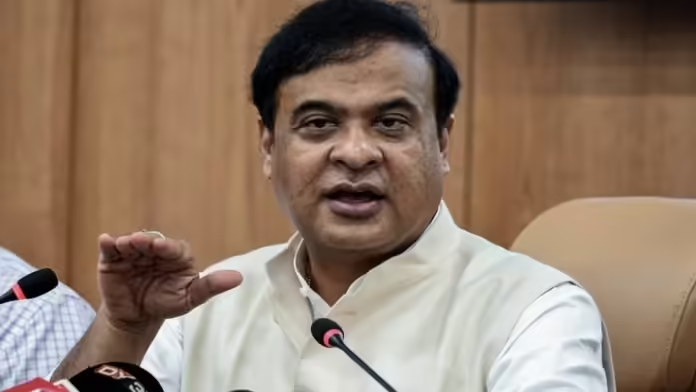Assam Chief Minister Himanta Biswa Sarma made a bold pledge regarding the enforcement of the National Register of Citizens (NRC) in Assam. On September 27, Sarma declared that the state government would take decisive action to ensure that individuals excluded from the NRC would be pushed back to Bangladesh. His statement, filled with strong rhetoric, underscored the government’s commitment to addressing the complex issue of illegal immigration in the region.
Sarma emphasized that the NRC serves as a crucial tool in identifying and documenting the citizens of Assam. He reassured residents that the enforcement of this register is necessary to protect the rights of genuine citizens and maintain the demographic integrity of the state. With his statement, he aimed to instill confidence among the local populace that their identities and rights would be safeguarded.
The NRC, initially published in 2019, sought to document all the legal citizens of Assam, a state that has witnessed significant migration from neighboring Bangladesh over the decades. The final list, which excluded millions of names, stirred up intense debates and controversies, with many fearing the consequences for those left out. Sarma’s renewed focus on the NRC comes amidst ongoing discussions about the implications of the register, particularly regarding the fate of individuals whose names do not appear on the list.
As he addressed supporters, Sarma’s strong language resonated with many who share his concerns about illegal immigration. He reiterated that his government would not tolerate the presence of illegal immigrants, vowing to take the necessary measures to ensure that those without legitimate citizenship would face deportation. His comments reflect a broader narrative that appeals to those who feel their cultural and social fabric is at risk due to unchecked migration.
Sarma’s remarks also align with the political climate in Assam, where the issue of illegal immigration has long been a contentious topic. The ruling Bharatiya Janata Party (BJP) has consistently advocated for strict measures to control immigration from Bangladesh, positioning itself as the protector of Assamese identity. This stance has garnered significant support among various sections of the population who feel threatened by demographic changes in the state.
The Chief Minister’s pledge to deport individuals excluded from the NRC has raised concerns among human rights advocates and activists. Critics argue that such measures could lead to widespread injustice, targeting vulnerable populations who may lack the documentation needed to prove their citizenship. They warn that this approach risks creating a humanitarian crisis, particularly for those who have lived in Assam for generations but may be unable to provide the required proof of citizenship.
In response to these criticisms, Sarma maintains that the government will ensure a fair process during the NRC enforcement. He reassured the public that every individual’s case would be assessed on its merits, emphasizing that the objective is to identify illegal immigrants rather than persecute genuine citizens. However, many remain skeptical, fearing that the realities on the ground may not reflect the assurances provided by the government.
Sarma’s statements have also garnered attention beyond Assam, reflecting a growing sentiment within parts of India about immigration and national identity. His comments echo similar sentiments expressed by other leaders across the country who advocate for stringent measures to control immigration from neighboring countries. The topic remains a hot-button issue in Indian politics, influencing elections and public opinion as citizens grapple with questions of belonging and citizenship.
As Assam prepares for the implementation of the NRC, the Chief Minister’s comments serve as a rallying cry for supporters and a point of contention for critics. The stakes are high, with the potential for significant political and social ramifications. Sarma’s commitment to pushing back Bangladeshis signals a determined approach to addressing the complexities of immigration in Assam, as the state navigates the challenges of preserving its identity in an ever-changing demographic landscape.
As the enforcement of the NRC unfolds, the coming months will be critical in determining its impact on the people of Assam. Sarma’s pledge to take a firm stand against illegal immigration resonates with many, but the challenges ahead will require careful consideration of human rights and social justice. The balance between safeguarding identity and ensuring fairness will be pivotal in shaping the future of Assam and its people.


